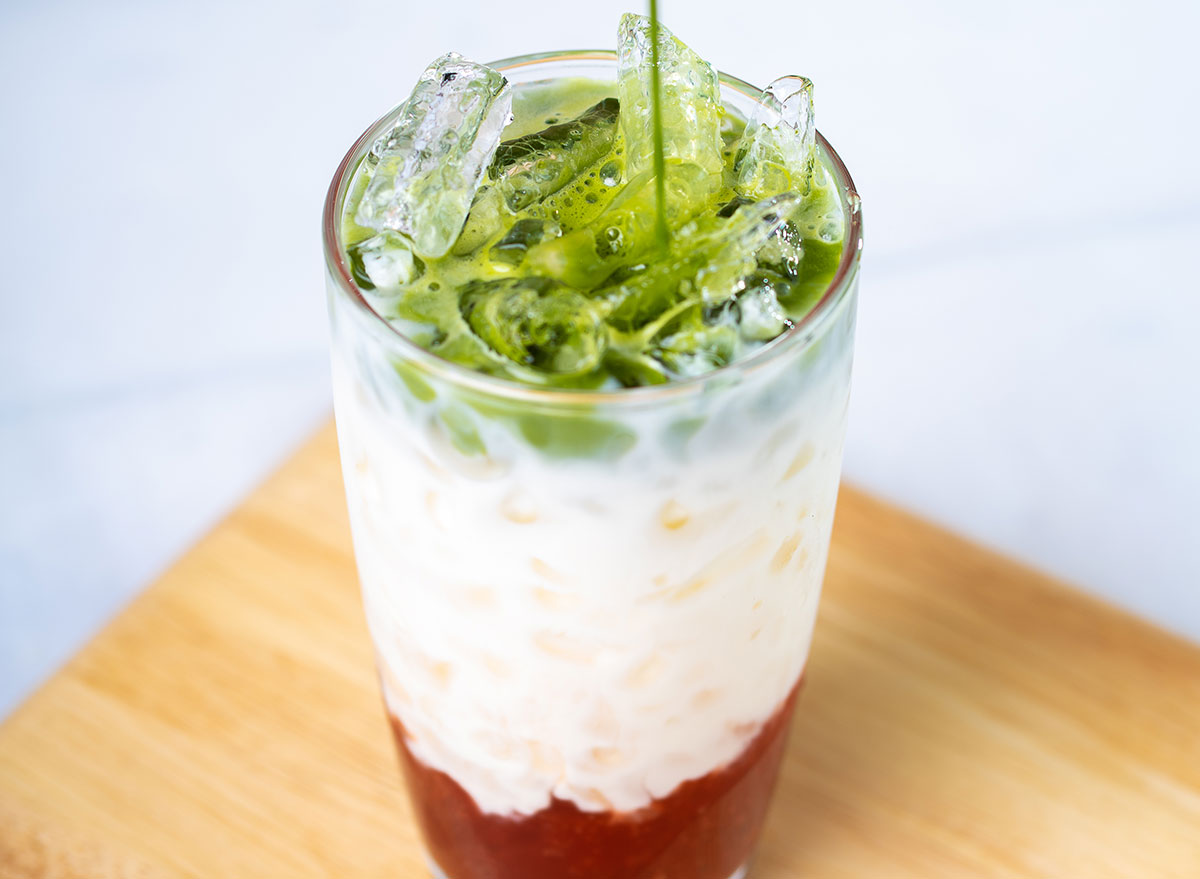courtesy of eatthis.com
What's Really in Your "Healthy" Meal?
The term "healthy" is subjective, especially in the realm of nutrition. What one person deems a nutritious choice, another might consider a diet disaster. Despite their marketed health benefits, many foods and beverages can contribute to unwanted weight gain if not consumed carefully.
Fats: A Double-Edged Sword
While certain oils boast heart-healthy fats and are recommended for inclusion in our diets, overindulgence can quickly lead to calorie overload. A single tablespoon of oil can add over 100 calories to your meal, proving that even the most beneficial foods can have drawbacks.
Acai Bowls: Not Always a Light Choice
Acai bowls, brimming with fruits, nuts, and seeds, offer a wealth of nutrients but can also be surprisingly high in calories and sugar. To keep your bowl on the lighter side, opt for no added sugars and be sparing with high-calorie toppings.
Matcha Lattes: A Sugary Slip
Matcha is celebrated for its antioxidants and caffeine, but when transformed into a latte, it's often paired with hefty amounts of added sugar. Choosing a simpler preparation can help you enjoy matcha's benefits without the sugary pitfalls.
Granola: Crunch with Caution
Granola, a mix of oats, nuts, seeds, and dried fruit, can also sneak in added sugar and oil, making it a less healthy choice than many realize. Look for versions with minimal added sugar, or try making your own for a healthier twist.
Red Wine: A Caloric Culprit
Though red wine is often praised for its antioxidants, it's also high in calories and can disrupt your body's energy metabolism, potentially leading to weight gain. Moderation is key when enjoying a glass.
MCT Oil: A Ketogenic Caution
Popular in the ketogenic diet, MCT oil provides calories that can quickly accumulate, possibly leading to weight gain. Substituting it for other oils in your diet can help you avoid excess calorie intake.

courtesy of eatthis.com
Protein Bars: Choose Wisely
Despite their convenience and nutrient content, protein bars can be calorie-dense and high in added sugar. Select bars with low added sugar, ample protein, and sufficient fiber to make a smarter snack choice.
Flavored Oatmeal: A Sugary Start
Flavored oatmeal packets often come with unnecessary added sugar. Opting for plain oatmeal and adding natural sweeteners like fruit can offer a healthier, more balanced breakfast.
Flavored Yogurt: Spoonfuls of Sugar
Flavored yogurts may contain surprising amounts of added sugar. Choosing plain yogurt and adding your own fruit can help you enjoy a nutritious snack without the extra sweetness.
Dried Fruit: Sugar in Disguise
While dried fruit offers vitamins and minerals, it can also be a concentrated source of added sugar. Look for options without added sugars and pair them with protein or fat for a more satisfying snack.
Electrolyte Drinks: Not for Everyday Hydration
Many electrolyte drinks add unnecessary sugar and sodium to your diet. For most, staying hydrated with water is sufficient, leaving electrolyte supplements for those with specific hydration needs.
In the quest for health, it's crucial to look beyond the labels and understand the nutritional content of your favorite "healthy" foods. Moderation, careful selection, and an eye for added sugars can help you make choices that truly benefit your health without the risk of weight gain.
*** We deeply appreciate our sponsor *** |
| [TAG2]
Image Credit: Jennifer Ross / AuthorsUSA.com |
Did you miss our previous article...
https://naturesmart.us/wellness/grandmas-egg-casserole-a-christmas-brunch-tradition
 HealthWellnessFitnessBeautyVideosPrivacy PolicyTerms And Conditions
HealthWellnessFitnessBeautyVideosPrivacy PolicyTerms And Conditions
